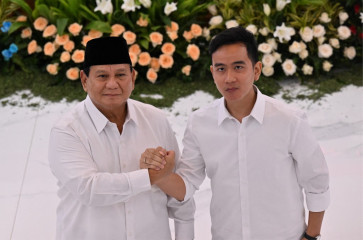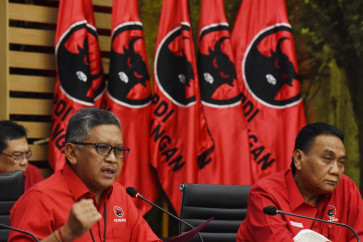Education system relic of colonialism: Experts
Experts and practitioners have criticized the national education system, which they said was discriminatory and a throwback to the colonial era
Change Size

E
xperts and practitioners have criticized the national education system, which they said was discriminatory and a throwback to the colonial era.
Senior education practitioner H.A.R Tilaar said the spirit of colonialism was still evident in the country's current education system as there was still social segregation, continuing on from the Dutch colonial era.
"Back then, there were schools for indigenous people, schools for those of Chinese or Arabian descent and schools for European nationals," he told a national symposium on education held at the University of Indonesia in Depok, southern Jakarta, on Thursday.
Nowadays, he added, the national education system was no different.
"Now we have poor schools for the paupers and international standard schools with international curricula and sky-high tuition fees for the privileged."
The National Education Ministry is working to map the quality of the state schools in the country using students' national exam scores.
The schools would be categorized on three levels: minimum service standard schools (SPM), national standard schools (SSN) and international standard schools (SBI).
Those pursuing the last two standards have frequently been eyeing top universities at homes or foreign universities.
Some schools become international standard pilot-project schools (RSBI), or state schools that are in the process of becoming SBIs.
SSN refers to state schools that have qualified teachers, adequate learning facilities and have had good academic achievements, while SPM refers to state schools with modest human resources and facilities.
The tuition fees for SBIs are naturally much higher than in SPMs.
Tilaar said such classification prevented people from lower social classes from receiving quality education.
"Because the poor don't pay, they are denied high quality education."
Education expert Eko Prasetya, also the writer of Orang Miskin Dilarang Sekolah (No school for the poor), said the government's advertisements on free education "made it clear education is simply business".
Eko said the ministry ran TV advertisements saying the government would provide free education for school children starting from this year, and the ads then changed to say that free education meant the government would pay for the schools' operational costs, but parents would still have to pay for their children's study materials, like books and pens.
"If parents still have to pay for those things, then you can't call it *free education'. Free education means you don't need to pay for your uniforms, books, or even bus fares." Tilaar said.
Eko said the Taman Siswa schools in Yogyakarta had set a good example by providing education for the poor by taking in 100 students from low-income families every year.
"It's a good practice, but students still have to pay for expenses when they undergo orientation weeks."
Tilaar said that the neo-liberalism paradigm in the country's education system had reduced the government's contribution to improving the quality of education.
"Our education institutions today are driven by market forces, and not by a good will, in the provision of quality education services," he said.
The practice was worse in the higher education institutions, he added.
"Students should be constituents in higher education institutions, instead they are treated as if they are the source of funding for the schools' operations."
Tilaar urged the government to review discriminatory policy on the schools classification. (adh)









